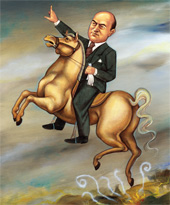It’s come to my attention that many of you have not registered for Spring term. You can’t be serious!
Here’s what’s in store:
- Professor Galambos: Econ 100: INTRODUCTORY MICROECONOMICS (Q) 12:30-02:20 TR
- Professor Karagyozova Econ 120: INTRODUCTION TO MACROECONOMICS (Q) 11:10-12:20 MWF BRIG 223 09:50-11:00
- Professor Galambos Econ 180: ENTREPRENEURSHIP IN THE ARTS & SOCIETY (S) 09:00-10:50 TR
- Professor Gerard Econ 240: POLITICAL ECONOMY of REGULATION (W) 03:10-04:20 MWF
- Professor Gerard Econ 280: ENVIRONMENTAL ECONOMICS 09:50-11:00 MWF
- Professor Finkler Econ 320: MACROECONOMIC THEORY (Q) 09:50-11:00 MW and 08:30-09:40 T
- Professor Finkler Econ 425: ENTREPRENEURSHP & FINANCIAL MARKETS 12:30-02:20 TR
- Professor Karagyozova Econ 460: INTERNATIONAL ECONOMICS (G,Q) 01:50-03:00 MWF
Count ’em, two courses on entrepreneurship, a new 400-level chance to take International, and my new writing-intensive course on the political economy of regulation. If you are itching to take that one, signal your interest by getting on the waiting list.
The schedule for next year is up on Viking as well. Start planning ahead if you need to fill those econ boxes.

 Well, the future of pedagogy has arrived in the form of
Well, the future of pedagogy has arrived in the form of  Jay Dansand and the gang for transporting the site.
Jay Dansand and the gang for transporting the site.